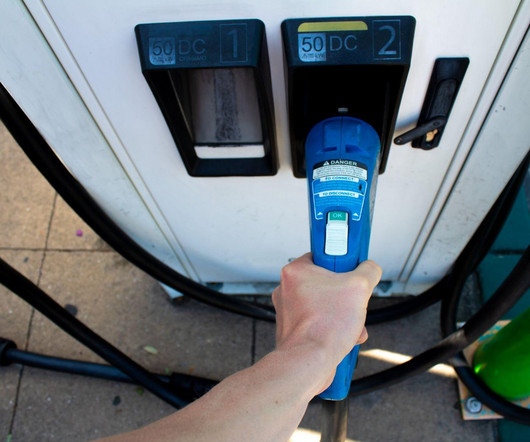Researchers developing DC micro smart grid for charging EV fleets; Li-ion, redox flow batteries and renewables
Green Car Congress
MARCH 7, 2014
A team from Fraunhofer Institute for Industrial Engineering IAO, together with Daimler AG and the Institute for Human Factors and Technology Management at the University of Stuttgart, is developing both the charging infrastructure and the energy management systems required to manage large fleets of EVs in a project called charge@work.















Let's personalize your content